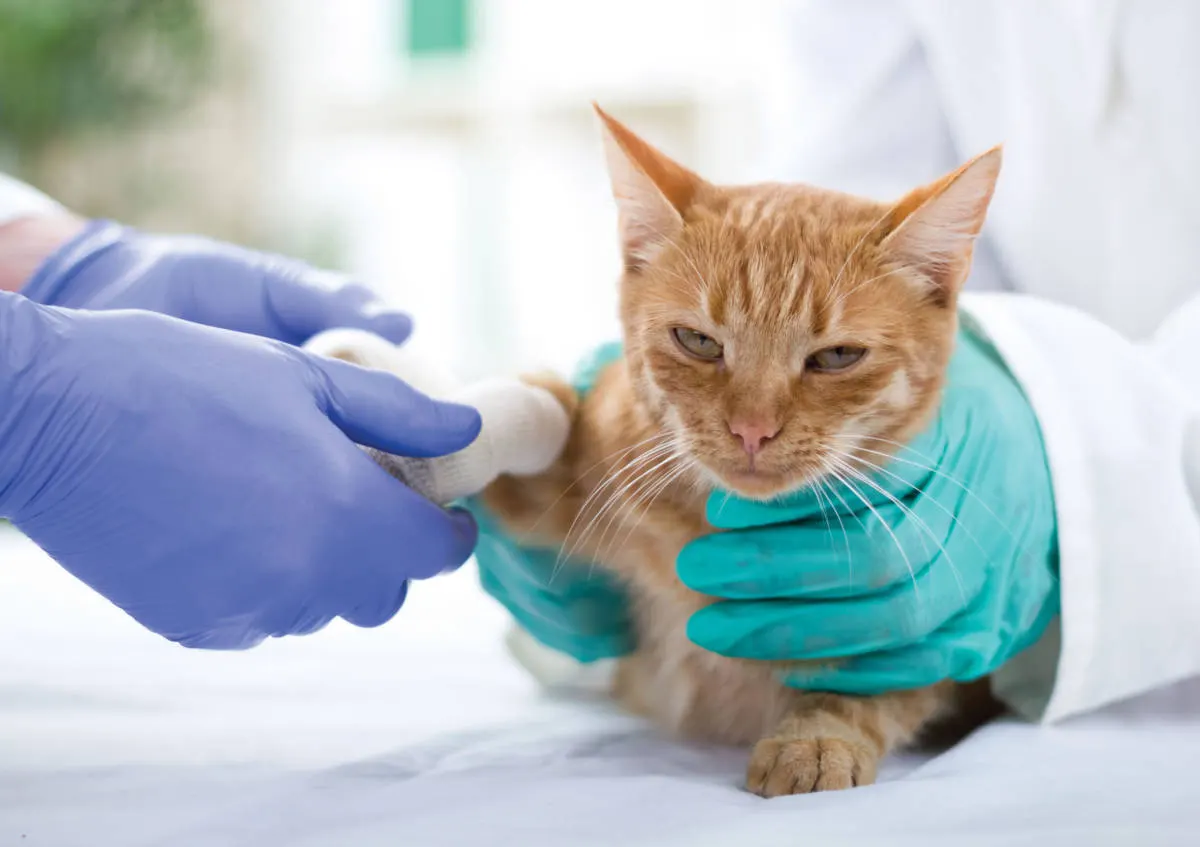Minimally invasive procedures offer profound health benefits without the extended recovery time or potential pain of traditional veterinary surgeries.
Whenever possible, our animal hospital offers minimally invasive procedures when treating your pet, to reduce both pain and the time needed for recovery. Our minimally invasive veterinary surgeries allow us to perform exploratory surgery, bladder stone removal, prophylactic gastropexy procedures, and more. These procedures can greatly enhance the health of your pet while creating less postoperative pain and discomfort in the process.
By using minimally invasive surgery techniques and non-invasive procedures such as endoscopy, our veterinarians offer our patients many benefits over traditional surgeries.
Veterinary Associates is the first pet hospital on Cape Cod to offer minimally invasive surgical procedures. From exploratory surgery, bladder stone removal, to prophylactic gastropexy procedures, our veterinarian’s minimally invasive approach means much smaller incisions, faster recoveries, with a lot less pain.
Minimally Invasive Surgery (MIS) means less post-operative pain and discomfort. Studies have shown that human patients undergoing MIS procedures report less pain and require smaller doses of pain relievers than patients undergoing traditional surgeries.
MIS, which includes laparoscopic surgery, uses the latest technology. When performing MIS, the surgeon creates small, dime-sized incisions that allow the use of a miniature camera, or laparoscope, and specialized instruments to perform the procedure, so there is no need for a large, conventional incision. Smaller incisions mean less pain for our patients, along with a faster recovery.
Doesn’t your new best friend deserve a less painful spay?
A laparoscopic ovariectomy means your pet will have less pain, greater safety, and a faster recovery. Studies show that a laparoscopic spay is up to 65% less painful than a traditional spay.
The Advantages of Laparoscopic Spays:
- The surgery is performed through two tiny incisions the size of a dime
- It is less painful than a traditional spay
- It provides the veterinary surgeon a much better view
- Potential complications are reduced
- Your pet has a faster recovery
- Using our advanced Ligasure Vessel Sealing System, bleeding is minimal to nonexistent
- Gastropexy can be performed at the same time
Be sure to ask us how our pet hospital’s advanced laparoscopic procedures like this can be a less painful, faster healing alternative.
Gastric Dilatation and Volvulus (GDV) is a life-threatening disorder most commonly seen in large, deep-chested dogs. The term refers to a gas-filled stomach (bloat) that twists upon itself. The exact cause is still unknown. This is probably the most serious non-traumatic condition seen in dogs. Immediate veterinary attention is required to save the dog’s life. Statistically, we know that large, deep-chested breeds are more prone to GDV. These breeds include Great Danes, Saint Bernards, Labrador Retrievers, German Shepherds, Weimaraners, Setters, Standard Poodles, Doberman Pinschers, and Old English Sheepdogs.
Many veterinarians are now recommending at-risk breed dogs undergo a prophylactic (preventative) laparoscopic gastropexy so the dog is never at risk for the condition. Gastropexy (surgical attachment of the stomach to the body wall) is the most effective means of prevention. The procedure can be performed at the time the dog is spayed or neutered, or at any other time. The laparoscopic procedure is much less invasive than traditional open surgery, with much reduced postoperative pain, bleeding, and recovery time.
Laparoscopy
Laparoscopy is a minimally invasive procedure that allows for direct visualization of the internal organs using a small, detailed camera. Instead of making a large incision, 2-3 small (<1inch) incisions can be used to allow entry into the abdomen for the camera and surgical tools. Laparoscopy allows for biopsing internal organs as well as removing retained testicles and removing ovaries for a spay procedure with minimal trauma. For our large breed, deep chested dogs we often have to worry about stomach torsion in which the stomach twists on itself leading to a medical emergency. Laparoscopy allows us to preemptively tack the stomach down to the body wall to prevent this from happening in our at-risk patients.
Laparoscopic surgery is the cutting edge of the veterinary surgical field, and is a giant step forward from traditional “open” exploratory surgery. Usually, veterinarians perform exploratory surgery through a large incision in the abdomen in order to look inside and take biopsies. The incision is long and painful, resulting in your pet being hospitalized for days for appropriate care and pain management.
But with laparoscopic exploratory surgery the incisions are so tiny that the patient experiences far less post-operative pain and recovers faster. The procedure is considered very safe and poses no more risk than traditional veterinary surgery.
Veterinary Associates of Cape Cod is the only animal hospital in southeastern Massachusetts performing these minimally invasive procedures.
ECG (Electrocardiogram)
Electrocardiography is a quick, noninvasive test that we can run on our patients having underlying heart disease and arrhythmias. This test allows our veterinarians to determine the nature of the heart disease thereby enabling us to pick the best medications to treat our patients’ heart problems.
Blood Pressure
High and low blood pressure can be a serious problem for our pets requiring immediate attention. Our blood pressure monitors allow for accurate pressure readings with no discomfort to our patients.

